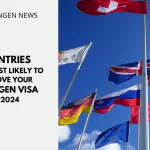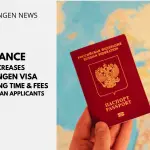DIY Schengen Visa Application – Apply for a Schengen Visa from the UK

DO IT YOURSELF SCHENGEN VISA APPLICATION – APPLY FOR A SCHENGEN VISA FROM THE UK IN 3 EASY STEPS
The Schengen States
Do you need a Schengen Visa?
What type of visa do you need?
Which documents do you need to provide?
When, where and how can I apply for a Schengen Visa?
– GUIDELINES FOR THE UK RESIDENT –
DO IT YOURSELF SCHENGEN VISA APPLICATION – APPLY FOR A SCHENGEN VISA FROM THE UK IN 3 EASY STEPS
Residing in the UK but don't hold British or EU citizenship? Don't let it stop you from travelling all over the Schengen area. Here is our quick and easy handy simplified Schengen Visa guide to help you apply for a Schengen visa from the UK.
There's so much info out there on the internet that when you search for “Schengen Visa Application”, “Schengen Visas” or “Apply for a Schengen Visa” or any Schengen visa information, you will be taken to a whole heap of sites that give you Schengen Visa information.
Some of it is true but a lot is advertising and there is a lot of outdated or incorrect information. So below is information about applying for a Schengen Visa in the UK. Here's your quick and easy handy guide to applying for a Schengen visa.

Just click on the country you want to visit and voila you are just three steps away from experiencing the breathtaking natural beauty, epic history and amazing artistic and culinary diversity of Schengen States.
Schengen States
When you apply for a Schengen visa from the UK, remember to be at the visa centre or Embassy ahead of time with your documents ready so as not to miss your appointment.
Step by step process on how to get your Schengen Visa for any of the 26 countries members of the Schengen Area:
⏩ Do you NEED a Schengen Visa?
You don’t need a visa to enter the Schengen Area if:
- You are a UK citizen with a valid British Citizen Passport.
- Although the UK is not part of the Schengen Area (or Schengen Zone), British citizens can travel to Europe visa-free for a maximum of 90 days under EU law. Additionally, since 9 June 2014, all British Overseas Territories citizens (BOTCs), British Overseas citizens (BOCs), British Protected Persons (BPPs), and British Subjects (BS) are allowed to travel visa-free to the EU Schengen Area for a maximum of 90 days.
But since the UK voted out of the EU and have withdrawn from the EU since 31st January 2020, the future of free movement for British Citizens is unclear. But for the time being, free movement will apply for British citizens and their dependents until 31st December 2020.
- If you are a spouse or dependent of an EEA or UK national, you do not need a Schengen Visa if you are travelling with that national, but there are some practical considerations
- If you have a Refugee Travel Document, you are allowed to visit Europe without a visa
You are exempt from Schengen visa UK requirements:
- If you have a diplomatic passport, service/official passports or special passports
- If you are a civilian air and sea crew members in the performance of your duties
- If you are a civilian sea crew members who hold a seafarer’s identity document
- If you are a crew and member of emergency or rescue missions in the event of a disaster or an accident
- If you are a civilian crew of ships navigating in international inland waters
- If you hold travel documents issued by intergovernmental international organisations of which at least one Member State is member
You need a Schengen visa if:
- you reside in the UK and have a UK Resident Card, or a UK Visa and are planning to come to any of the 26 countries members of the Schengen Zone, for any reason, such as tourism, visiting friends and family, business purposes, medical or even a pilgrimage, you can apply for a Schengen visa from the UK, come to one your targeted Schengen country and also experience the additional benefit of being able to travel across Europe visa-free for a maximum of 90 days.
- you are not a UK, EU or 60 other nationalities that don't need a Schengen visa to travel to Europe
- If transit through the international transit areas of airports of the Schengen States (“airport transit visa”) (for citizens of certain countries only or other exceptions such as Afghanistan, Bangladesh, Congo, Eritrea, Ethiopia, Ghana, Iran, Iraq, Nigeria, Pakistan, Somalia, Sri Lanka)
Remember: You can only apply for a Schengen visa if you have at least 3 months left on your current UK Visa or biometric residence card. If you don’t have the full three months left on your visa, you will need to renew your current UK visa or provide onward flight details as part of your application.
⟹ Check out our Schengen Visa Eligibility Checker to know if you can apply for a Schengen Visa
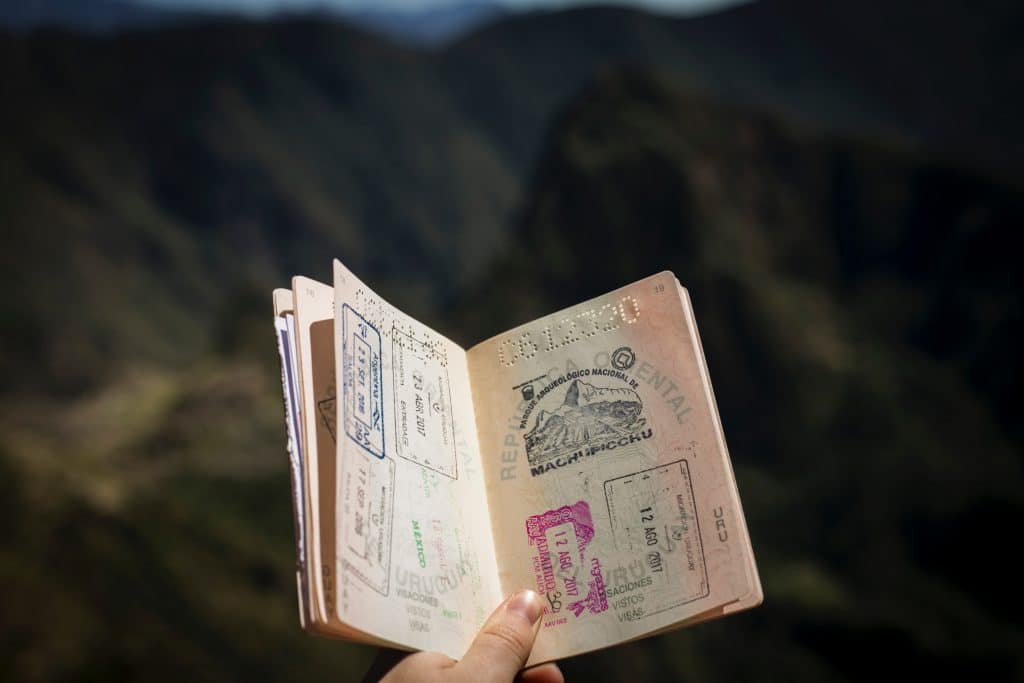
⏩ What TYPE of visa do you need?
Getting a short-stay Schengen Visa will allow you to travel in the Schengen Area for no more than 90 days, within a 180 days period.
- Tourism visa
- Airport transit visa
- Visitor visa family or friends
- Business visa
- Student visa
- Visa for medical reasons
- Visa for official visits
- Visa for cultural purposes (culture, film crew, sports and religious visa)
And what kind of Uniform Schengen Visa is the best for you:
-> the Single-entry visa: it allows you to enter the Schengen Area only once
-> the Double-entry visa: it gives you the same rights as the single-entry permit but allows you to go back to the Schengen area after you left it -> the Multiple-entry visa: it allows you to go in and out the Schengen zone as many time as you want, for a specific period of time (1 year; 3 years; 5 years)
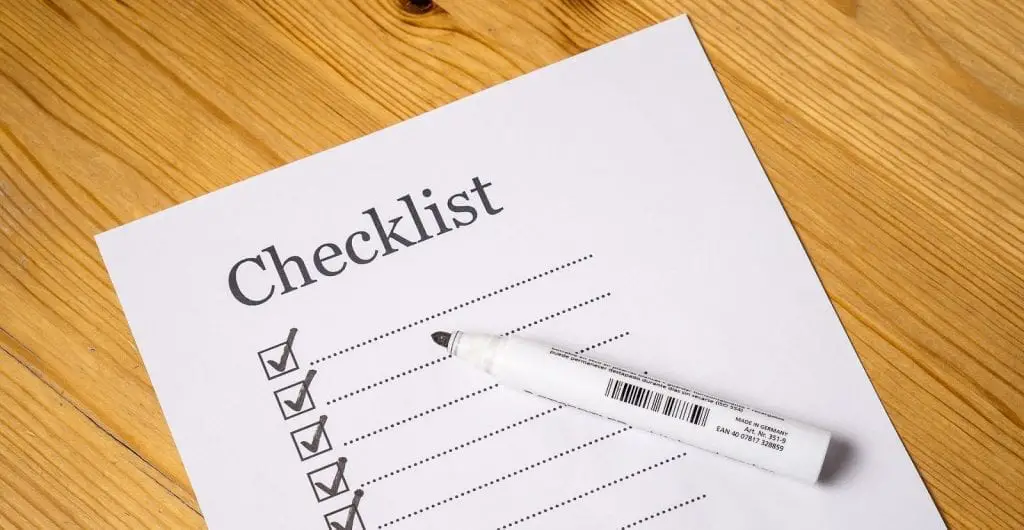
⏩ WHICH DOCUMENTS do you need to provide?
This is a non-exhaustive list of the common documents requirements for all countries members of the Schengen Area, you might need to look at the government website of the Schengen country you want to travel to.
- Original and valid passport (for at least 6 months beyond the date you which to leave)
- A recent identity photograph (45mmx35mm): check out our youtube video on How to take the perfect passport photo at home –
- A visa application form completed and signed
- A visa fee (€80 for an adult, €40 for a 6-12 years old child, free for child under 6 years old)
- A British Resident Permit
- Travel itinerary
- Minimum insurance cover of €30.000 for the entire period of stay in the Schengen Area
- Return ticket
- Proof of accommodation (accommodation certificate, confirmation of hotel booking,…)
BE AWARE that there are specific documents requirements if you are:
-> Employed: recent, official and signed original letter from employer, payslips for the last 3 months
-> Self-employed: recent original letter from an accountant, banker or solicitor, letter from the tax authorities
-> Unemployed/Retired: social benefit entitlement letter, pension statement of the last 6 months
-> Student: Letter from the British School, College or University
-> Children under 18: proof of guardianship, authorization from each parent, original and copy of the birth certificate, certified copies of passport of the parents, …
-> Spouse of UK nationals: spouse’s valid passport, civil marriage certificate (official translation), proof of pension receipt, original and copy of a letter from Spouse’s employer, last 3 months payslips
BE AWARE than you will have to prove that you have enough money for your trip (“means of subsidence”) and that each country has its own interpretation of the amount of money per day you need to have.
⏩ WHEN, WHERE and HOW can I apply for a Schengen Visa?
From February 2020, you can currently apply for your Schengen visa from the UK up to (six) 6 months before your planned trip and at least 15 days before you intend to travel. This is because it may still take up to 15 working days for a decision to be made.
- The application date is considered to be the date of when you hand in your application and documents to the Consulate.
- You must apply to the Embassy/Consulate/Visa Application Centre of the country of your first or longest destination (if you are travelling to two or more Schengen states)
Other changes in 2020 are the increase of the visa fee to €80 EUR, application forms going digital and also a representative of each country in each non-EEA country. Finally, once you can prove a good visa history, Countries are now encouraged to give you a longer period (up to 5 years) multiple entry visas.
Your application will need to be submitted at the primary or longest destination country’s;
- Embassy or consulates (find out about the difference between an embassy or consulate)
- Visa Application Center (VAC) to which the embassy has outsourced visa submissions
- An Embassy or Consulate of another Schengen country to which the embassy of your destination country has outsourced visa submission
- Most of the Schengen countries provide an online service where you can fill out the Schengen Visa Application Form and book an appointment with the Consulate or Embassy. If not, just book the appointment in person at the Embassy/Consulate/Visa Application Centre of your destination country
- Attend your appointment at the Embassy/Consulate/Visa Application Centre
Remember to be at the visa centre or Embassy ahead of time with your documents ready so as not to miss your appointment: if you are more than 10 minutes late, it is unlikely you will be allowed in to submit your documents!
Answering questions from the consular officer is also part of the Schengen Visa Application. Here is a non-exhaustive list of the most common questions asked during a Schengen Visa interview:
- What is the purpose of your trip
- Why do you want to visit Europe/particular country?
- Can you show your bank statement?
- Do you have health insurance for the duration of this journey?
- Are you travelling alone?
- Have you bought the flight ticket yet?
- What is the first country you want to visit and how long are you going to stay there?
- Are you employed?
- Are you married?
- Do you have any children?
- Where are you going to stay?
- After you Schengen Visa Application, you will have to wait 15 working days to get an answer on your Schengen Visa. The European Commission is considering permitting Schengen Countries to extend this timescale.
Be aware that the processing time depends on your individual situation: you can benefit from an accelerated procedure if you have an EEA or EU citizen family member or in case of an extreme medical emergency. However, it can take up to 2 months in exceptional cases.
- Collect your Schengen Visa and Passport in person, or by a representative or by Express Courier Return
If you have been refused a visa, you have the right to appeal against the Member State that has taken the final decision on your application.
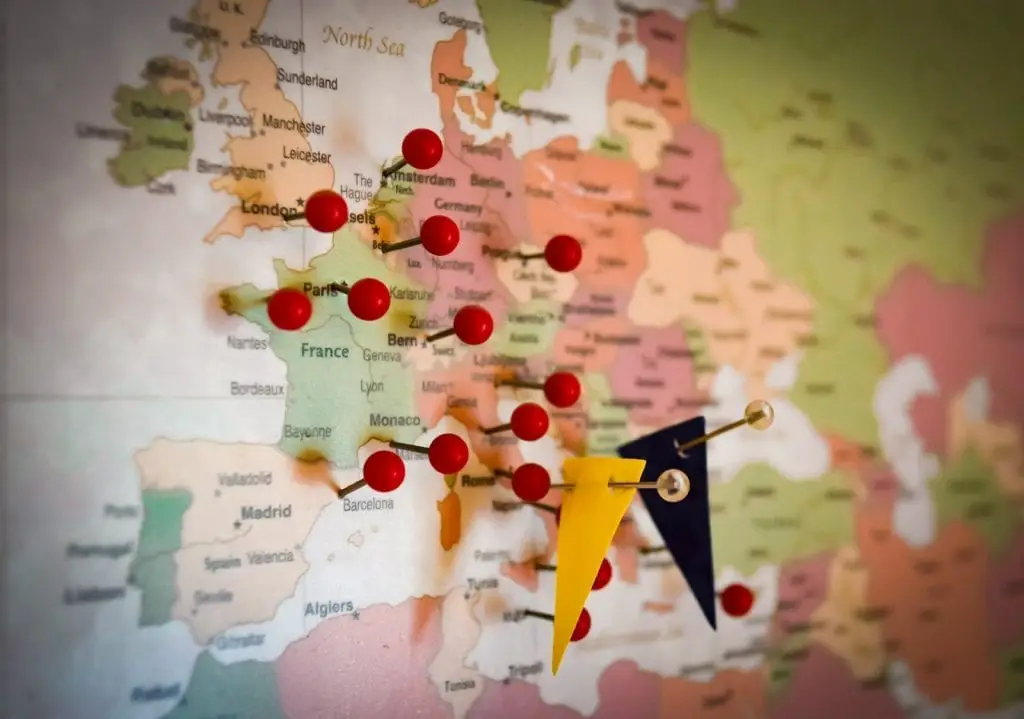
Now that you know the general requirements to apply for a Schengen Visa, just click on the country you want to visit and voila, you are just three steps away from experiencing the breathtaking natural beauty, epic history and amazing artistic and culinary diversity of Schengen States. Check out our Youtube Channel to better know about the 26 countries members of the Schengen Zone and which beautiful places you would love to see.
Schengen States:
If you want assistance in applying for a Schengen Visa, booking an appointment to submit your application or making sure your documents are and application is in order, then reach out to one of our advisors to apply for a Schengen Visa from the UK
Now that you have that visa, pack up your bags and start your Schengen adventure! And do not forget to download that translation app.
If you want assistance in applying for a Schengen Visa, booking an appointment to submit your application or making sure your documents are and application is in order, then reach out to one of our advisors to apply for a Schengen Visa from the UK or directly start your Schengen Visa Application NOW!
- Do It Yourself Schengen Visa Application – Austria - 23 December 2019
- DIY Schengen Visa Application – Apply for a Schengen Visa from the UK - 23 December 2019
- Do It Yourself Schengen Visa Application – Sweden - 23 December 2019

